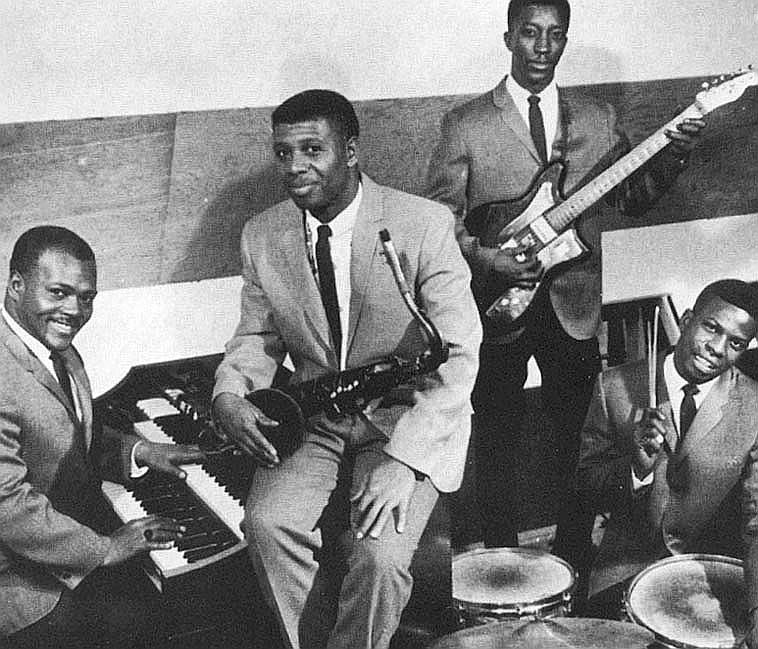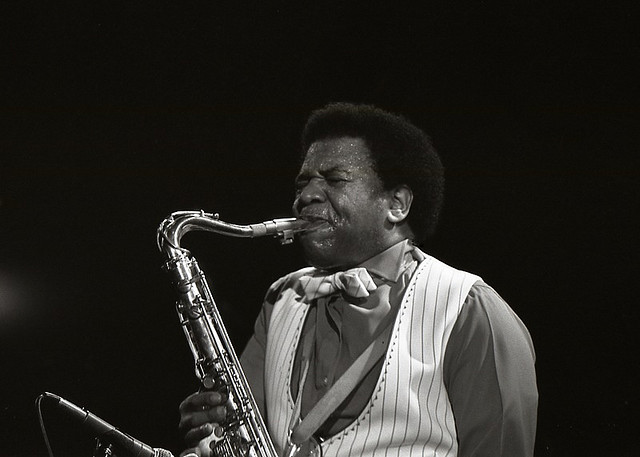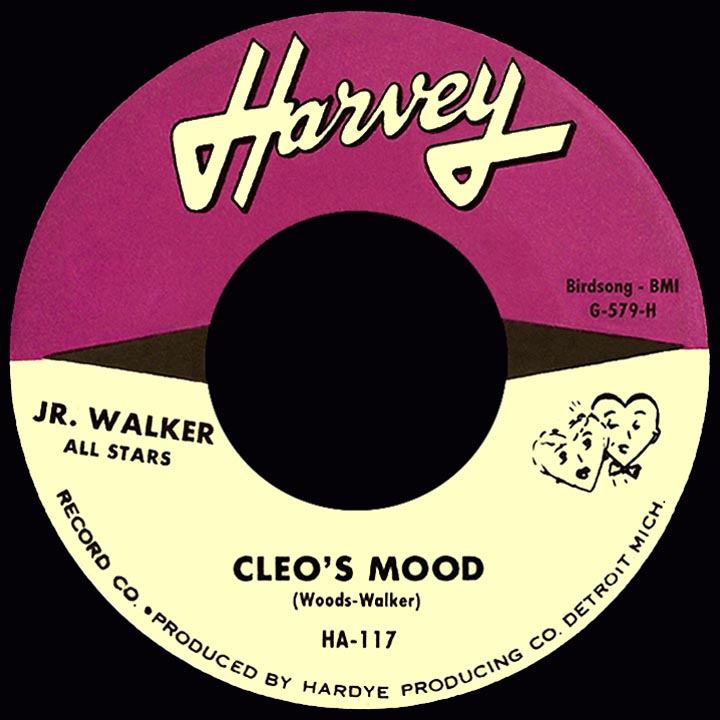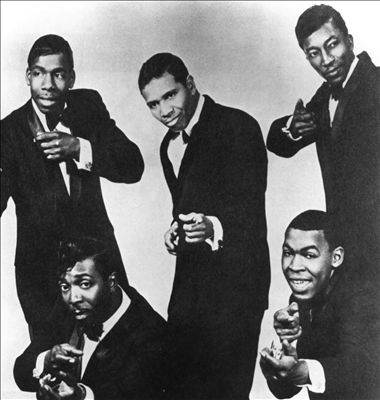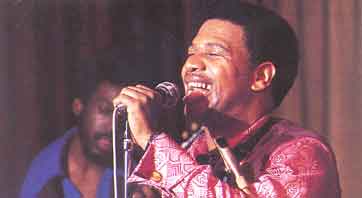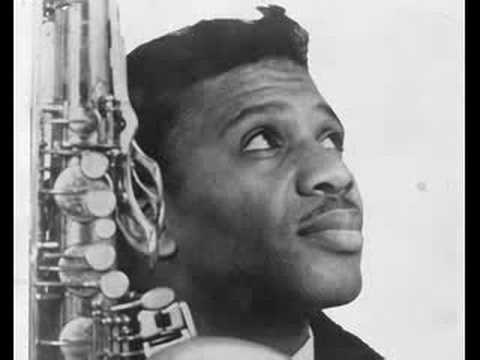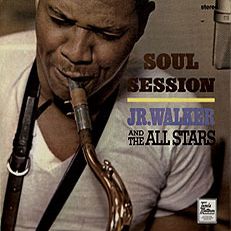Welcome To Northernsoultrain
Jr Walker & Allstars
Junior Walker (born Autry DeWalt Mixon, Jr., June 14, 1931 – November 23, 1995[1]) & the All Stars were signed to the Motown label in the 1960s, and became one of the label's signature acts.
Walker was born Autry DeWalt Mixon, Jr. in Blytheville, Arkansas and grew up in South Bend, Indiana. His saxophone style was the anchor for the band's overall sound. The other original members of the group were drummer Tony Washington, guitarist Willie Woods, and keyboardist Vic Thomas.
His career started when he developed his own band at the age of 14,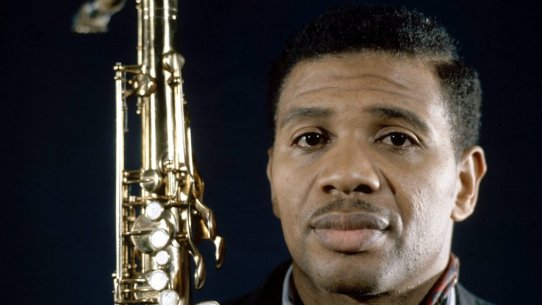 in the mid 1950s as the 'Jumping Jacks'. His longtime friend Billy Nix (drummer) started his own group the 'Rhythm Rockers.' Periodically Nix would sit in on Jumping Jack's shows, and Walker would sit in on the Rhythm Rockers shows.
in the mid 1950s as the 'Jumping Jacks'. His longtime friend Billy Nix (drummer) started his own group the 'Rhythm Rockers.' Periodically Nix would sit in on Jumping Jack's shows, and Walker would sit in on the Rhythm Rockers shows.
Nix obtained a permanent gig at a local TV station in South Bend, Indiana, and asked Walker to join him and his keyboard player (Fred Patton) permanently. Shortly after, Nix asked Willie Woods, a local singer, to perform with the group; shortly after Woods would learn how to play guitar also. When Nix got drafted into the United States Army, Walker convinced the band to move from South Bend to Battle Creek, Michigan. While performing in Benton Harbor, Walker found a drummer Tony Washington, to replace Nix. Eventually, Fred Patton (piano player) left the group, and Victor Thomas stepped in. The original name the 'Rhythm Rockers' was changed to the 'All Stars'. Walker's squealing gutbucket style was inspired by jump blues and early R&B, particularly players like Louis Jordan, Earl Bostic, and Illinois Jacquet.
The group was spotted by Johnny Bristol, and he recommended them to Harvey Fuqua, in 1961, who had his own record labels.[1] Once the group started recording on the Harvey label, their name was changed to Junior Walker & the All Stars. When Fuqua's labels were taken over by Motown's Berry Gordy, Jr. Walker & The All Stars became members of the Motown Records family, recording for Motown's Soul imprint in 1961.
The members of the band changed after the acquisition of the Harvey label. Tony Washington, the drummer, quit the group, and James Graves joined the group in the Motown family. Their first and signature hit was "Shotgun", written by Junior Walker, and produced by Berry Gordy and featured The Funk Brother's James Jamerson on bass. "Shotgun" reached 4 on the Billboard Hot 100 and 1 on the R&B chart in 1965, and was followed by many other hits, such as "(I'm A) Road Runner", "Shake and Fingerpop" and covers of the Motown tracks, "Come See About Me" and "How Sweet It Is (To Be Loved by You)". In 1966, Graves left and was replaced by old cohort Billy "Stix" Nicks, and Walker's hits continued apace with tunes like "I'm a Road Runner" and "Pucker Up Buttercup."
In 1969 the group had another hit enter the top 5,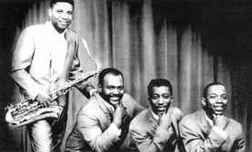 "What Does It Take (To Win Your Love)". A Motown quality control meeting rejected this song for single release but radio station DJs made the track popular, forcing Motown to release it as a single, whereupon it reached 4 on the Hot 100 and 1 on the R&B chart. From that time on Walker sang more on the records than earlier in their career. He landed several more R&B Top Ten hits over the next few years, with the last coming in 1972.
"What Does It Take (To Win Your Love)". A Motown quality control meeting rejected this song for single release but radio station DJs made the track popular, forcing Motown to release it as a single, whereupon it reached 4 on the Hot 100 and 1 on the R&B chart. From that time on Walker sang more on the records than earlier in their career. He landed several more R&B Top Ten hits over the next few years, with the last coming in 1972.
In 1979, Junior Walker went solo and was signed to Norman Whitfield's Whitfield Records label. He was not as successful as he had been with the All Stars in his Motown period. Walker also played the sax on the group Foreigner's "Urgent" in 1981. The solo was actually cobbled together from tapes that he had made with the band. He later recorded his own version of the Foreigner song for the 1983 All-Stars album Blow the House Down. Walker's version was also featured in the 1985 Madonna film Desperately Seeking Susan. In 1983, Walker was re-signed with Motown.
In 1988, Walker played opposite Sam Moore as one-half of the fictional soul duo "The Swanky Modes" in the comedy Tapeheads. Several songs were recorded for the soundtrack, including "Bet Your Bottom Dollar" and "Ordinary Man", produced by ex-Blondie member Nigel Harrison.
Junior Walker died on November 23, 1995 in Battle Creek, Michigan of cancer at the age of 64. He had been inducted into the Rhythm and Blues Foundation that year. Drummer James Graves died in 1967 in a car accident, and guitarist Willie Woods in 1997 at age 60. Victor "Vic" Thomas died Sunday, November 28, 2010 in Battle Creek, Mich.. Tony Washington is the only original surviving band member of the four that Harvey Fuqua signed to his label in 1961 and took to Motown with him.
.
Junior Walker's remains were buried in Oak Hill Cemetery, in Battle Creek, Mich, under a marker with both his birthname of Autry DeWalt Mixon, Jr., and his stage name displayed.
Walker's "Shotgun" was inducted into the Grammy Hall of Fame in 2002.
Junior Walker & The All Stars were inducted into the Michigan Rock and Roll Legends Hall of Fame in 2007
